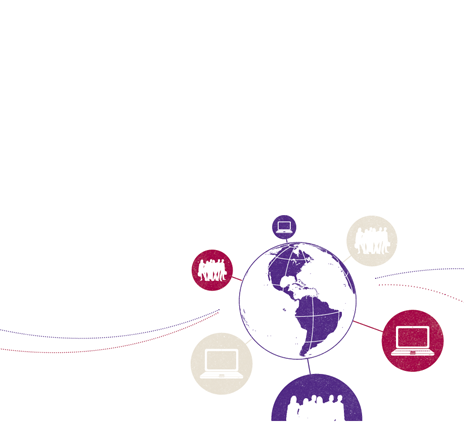-
Deals Services
The financial advisors of Grant Thornton offer customized solutions to their clients through personalized methods and services.
-
Technology
Our goal is to redefine how clients do business. With expertise in digital strategy, AI, data insights, and automation, we create personalized solutions to enhance productivity and drive innovation.
-
Strategy and Investments
The Strategy and Investments department supports businesses at strategic, operational and financial level.
-
Environmental, Social, Governance, Risk & Compliance
In the current business and regulatory environment, businesses aspire to meet today's requirements effectively, and to create value on sustainable terms.

-
Audit Services
The dedicated staff of Grant Thornton provide you with audit services such as financial statements for your business by using the HORIZON methodology.
-
Business Growth Advisory
At Grant Thornton, we recognize the need to align financial data with regulatory change, as well as the requirement for accurate financial data and consulting services.

-
Corporate Taxation
Grant Thornton's tax professionals offer Corporate Taxation Services to provide advice and solutions to any issues your business may have.
-
Corporate tax compliance
The Grant Thornton corporate tax compliance specilaists possess long experience in both multinationals and Greek companies in all business sectors.
-
International tax services
Grant Thornton supports all businesses operating at the European and international level with advice on international tax matters.
-
Transfer pricing
Grant Thornton offers comprehensive pricing policy planning and tax audit support for domestic, multinational and corporate tax executives.
-
Tax Controversy
Grant Thornton provides tax audit and risk services because tax disputes are unavoidable in numerous businesses.
-
Private Client Services
In case you are an individual, Grant Thornton provides services like tax returns, transfer of wealth to future generations and expatriate taxation services
-
Indirect taxes
Learn more from Grant Thornton about our services for indirect taxes such as real estate taxes, customs, VAT and stamp duties.
-
Tax restructuring
Grant Thornton provides tax advisory services to companies undergoing tax restructuring or a change in their strategic direction.
-
Diagnostic Tax Review
Diagnostic tax review is a tax service offered by Grant Thornton to assist your organisation in identifying and assessing potential tax exposures.
-
Tax efficient supply chain planning
Get informed about tax efficient supply chain planning and how to improve your company's productivity model by reorganizing your productivity activities.
-
Global mobility strategy
In a globalized world, businesses must work seamlessly across borders. Organizations operate in multiple countries and view international expansion as a strategic objective.

-
Accounting & Tax Compliance Services
Transferring non-core, yet important, activities outside the company and assigning them to specialists - external partners (Business Process Outsourcing) is the best practice applied by companies seeking to maximize efficiency and cut costs.
-
HR & Payroll services
Grant Thornton provides specialized services in payroll management and human resources management for any type of company.

-
Banking
Grant Thornton has a dedicated financial services team that provides banking services such as tax and non-bank accountancy advisory services.
-
Insurance
Here you will find all the financial assurance services that Grant Thornton can offer to your company and the pillars that are included.
-
Asset management
In Grant Thornton, asset management is a business approach that concerns assurance and control services and regulatory compliance services.
-
Central Government
Grant Thornton provides services to central government agencies to respond immediately and effectively to the challenges that have arisen.
-
Public Corporations and Organizations
Grant Thornton supports Public Enterprises and Organizations to evaluate their operations and upgrade their services to meet current requirements.
-
Local Government
Grant Thornton and its qualified employees offers audit and consulting services to support local government challenges.
-
NSRF Managing Authorities and Special Services
Grant Thornton's specialized team of executives provides Technical Assistance services for the programs managed by Special Services.
-
Public Health Services
Grant Thornton includes experienced professionals whose aim is to provide integrated services at all levels of the public health system.
-
Social Security Services
The public sector division of Grant Thornton provides high quality audit and advisory support services to members of the pension system.
-
Banking
Banking & Securities
-
Insurance
Insurance
-
Asset management
Asset management
-
Central Government
Grant Thornton provides services to central government agencies to respond immediately and effectively to the challenges that have arisen.
-
Public Corporations and Organizations
Grant Thornton supports Public Enterprises and Organizations to evaluate their operations and upgrade their services to meet current requirements.
-
Local Government
Grant Thornton and its qualified employees offers audit and consulting services to support local government challenges.
-
NSRF Managing Authorities and Special Services
NSRF Managing Authorities and Special Services
-
Public Health Services
Grant Thornton includes experienced professionals whose aim is to provide integrated services at all levels of the public health system.
-
Social Security Services
The public sector division of Grant Thornton provides high quality audit and advisory support services to members of the pension system.
-
Hotels & tourism services
Hotels & tourism services
-
Transportation
Transportation
-
Information Technology
Information Technology
-
Media
Media
-
Telecommunications
Telecommunications
If you don’t want to deal with a communications crisis, make sure your corporate governance procedures are robust enough to prevent it in the first place.
On 18 May 2010, almost a month after an explosion on BP’s Deepwater Horizon oil rig in the Gulf of Mexico, Tony Hayward, BP’s CEO at the time, told reporters: “I think the environmental impact of this disaster is likely to be very, very modest.”
In the event, five billion gallons of crude oil leaked into the Gulf of Mexico, 11 people lost their lives and, to date, BP has spent $55 billion on fines, payouts and clean-up costs. The company’s share price more than halved from a high of 651.46p and has never really recovered.
When a crisis goes beyond the operational aspects of fixing what has gone wrong, there are expensive pitfalls. “There can be costs in terms of loss of share and brand value, lawsuits, bad media exposure and of doing business afterwards,” says Luciano Bordon, Partner, Advisory Services at Grant Thornton Brazil. “The common reason for these crises is the lack of enterprise risk management. When a company has good enterprise risk management, these kinds of failings can be avoided.”
How you communicate with your stakeholders is just as important. If you get it wrong, the repair bill is likely to be much higher than expected.
Three lines of defence
Good enterprise risk management (ERM) is a fundamental part of good corporate governance. Vassilis Monogios, a Partner in Operational Advisory at Grant Thornton Greece, recommends the 'Three lines of defence' model as one to follow. It enables you to understand which structures inside an organisation can help you to identify, measure, manage and audit all possible material risks that threaten the strategic, financial, operational and compliance objectives of the company.
“The first line of defence is management: sales directors, purchasing, finance, IT directors and so on. They manage the risks in their area,” Monogios explains.
“The second line of defence has to do mostly with compliance and risk functions. Compliance deals with what the company needs to implement to be compliant with external regulations and internal processes. The risk function continuously evaluates those risks to see if they are mitigated to an appropriate level, according to the risk appetite of the organisation.
“The third line of defence is the internal audit function, which audits the organisation’s entire operations and captures the material issues that the first and second lines perhaps could not deal with effectively. It’s a very practical model.”
This model can work for smaller organisations as much as larger ones, says Bordon. “If it’s not a whole department, then make people responsible for internal controls. If they don’t have the expertise, hire consultant firms to evaluate internal controls. You can also buy internal audit systems to help in this kind of assessment.”
Watching what you say
An effective ERM strategy will also include a crisis communications plan for when things still go wrong, despite the three lines of defence, says Monogios. Without this, a problem that should be no more than moderate could become bigger. Even worse, a serious problem could disrupt the company's entire operation.
An effective crisis communications plan will cover how the media, public and shareholders are addressed during difficult times, including contingencies for the kind of scenario faced by BP.
Crucially, staff must be familiar with it at every level of the organisation. This is particularly important in today’s world where every employee, not just the CEO, has access to publishing platforms such as Twitter, Facebook and LinkedIn.
“Our best-prepared clients have a compliance department with a big communications plan for the whole organisation that explains good practice and how to avoid crises and mistakes,” says Bordon. “And all those responsible – everyone in management – teach their employees. They have meetings to explain the compliance programme. It's not only down to one person in the company, it's a multi-disciplinary task force.”
No company wants to be caught in the media spotlight for the wrong reasons. Good enterprise risk management helps prevent crises from occurring in the first place but if they still do, it also offers a robust communications plan that tells you how to speak to your stakeholders when things go wrong. As Bordon says: “You want to be more preventative before than detective afterwards, looking for what went wrong.”
To find out more about using enterprise risk management to avoid a communications crisis, contact Vassilis or Luciano directly.



